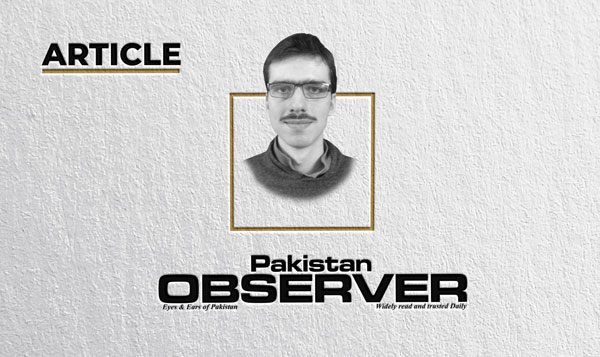Helping Türkiye and Syria is Pakistan’s need of the hour
WHILE the most pressing stage of the humanitarian crisis in Türkiye and Syria, in which people must be excavated from underneath collapsed structures and injuries tended to, is over, circumstances remain dire for the several million people affected by the earthquakes which began on February 6. One immediate problem was the freezing temperatures that so many people were exposed to, as it was still winter. Whole populations were left without proper shelter because of destruction of houses and the fear that buildings still left standing could collapse from aftershocks. Since then, hunger and disease, including a cholera outbreak spreading through over-crowded refugee camps, have been huge problems. The hospitals that survived are still filled up with sick and injured people. The affected population continues to be in dire need of aid. Plus, the earthquakes caused massive infrastructural damage, which means a whole region has to be rebuilt in order for people’s lives to be brought back to normal. There is a very large number of injured people, which means their personal recovery and rehabilitation has to be tended to.
So the rest of the world is deeply involved in mounting a huge rescue and relief response. But this is much more challenging than it usually was for disasters in the past, because of how crisis-ridden the whole world is, with two years of the coronavirus pandemic followed by the war in Ukraine and all its ripple effects. Yet most of the world’s nations have been sending help. That includes Pakistan, sending not only desperately-needed goods but also, from the very beginning, rescue teams from our own military, emergency services, and civil society organizations. Pakistanis consider this repayment for the aid that Turkey provided to Pakistan after the devastating floods of last year.
Both disasters have some significant similarities, even though earthquakes are generally a more acute kind of event than floods, with higher casualty-to-suffering ratio. For instance, the millions of people chronically displaced by the floods in Pakistan also contended with winter conditions as they struggled to survive out in the open. Many people affected by last year’s floods are still without shelter, and in some areas, floodwaters lingered for several months. The impact is mostly in Pakistan’s southern provinces of Sindh and Balochistan, which lie at relatively warm latitudes. But those areas did experience unusually cold temperatures this winter.
It is a good thing the flooding didn’t transpire during the colder months, because then people would be cold and wet at the same time. Unfortunately, the tremors in Turkey did, and in the coldest stage of winter (the shortest day of the year was back in December 21, but temperatures continued plummeting since then, as they do every year, because it takes time for the Earth to lose heat.) That meant millions of people were instantly thrown out into the elements without warning, and people trapped under the rubble, who often couldn’t do anything to make themselves warm, were also exposed to low temperatures. So hypothermia became a common cause of death.
While the problem in Pakistan was difficulty in getting aid far enough, in Turkey and Syria, it is difficulty in getting aid fast enough. One solution that Pakistan’s People-Led Disaster Management advocated for meeting one of the most pressing needs of our flood victims, protection from cold, is the distribution of a special thermal-insulating tent called a thermal tube tent. It reflects infrared while letting visible light through, so it keeps anybody inside it warm. The tent, when folded, fits in the palm of your hand. People often carry it along when camping and it is ideal for mass delivery to the earthquake victims of Turkey and Syria. As for people trapped under debris, it is possible that emergency responders could have found ways to get this material under the rubble to where they are so that the victims could stay warm. With people as willing to provide help, what direction they choose to put their resources into is very important.
Given that Pakistan is in a perfect storm of crises and struggling to cope, many may doubt how much help we are in a position to give the people of Turkey and Syria. Recovery from last year’s floods is still not complete, yet NDMA is busy delivering 50,000 winterized tents to Turkey and Syria. But there are benefits for our nation if we dedicate ourselves to the earthquake relief effort. For starters, when we help other nations through their crises, it becomes likely that they will later repay us by helping us with our troubles. That is the case with Turkey itself. Billboards in Islamabad calling for earthquake donations recall how Turkey helped Pakistan out in the 2022 floods.
Another thing we stand to get out of helping is a valuable learning experience. Handling a real disaster is the best way to gain the ability to cope with any crisis that may occur in the future. Because what happened in Turkey and Syria last month is one of the biggest natural disasters of the century, it offers a treasure trove of lessons, not just in handling earthquakes specifically but more broadly any humanitarian crisis. If, in addition to goods, Pakistan sent an abundance of its own people to the disaster zone, military personnel, firefighters, search and rescue professionals, doctors, nurses, etc., it will be a massive training exercise for them. We will probably have to avoid sending untrained volunteers over there to get an education in disaster management, because receiving visitors is a burden for Turkey and Syria at this time, so only the most useful people should go. But for even the most professional of workers, there is much to learn from managing a humanitarian situation of this scale.










